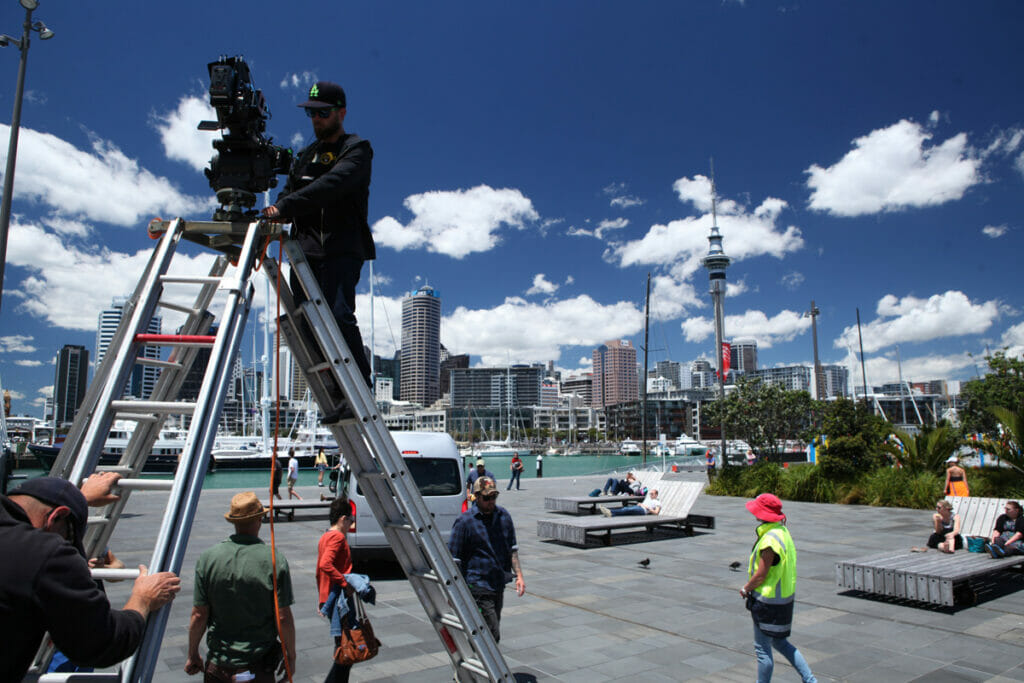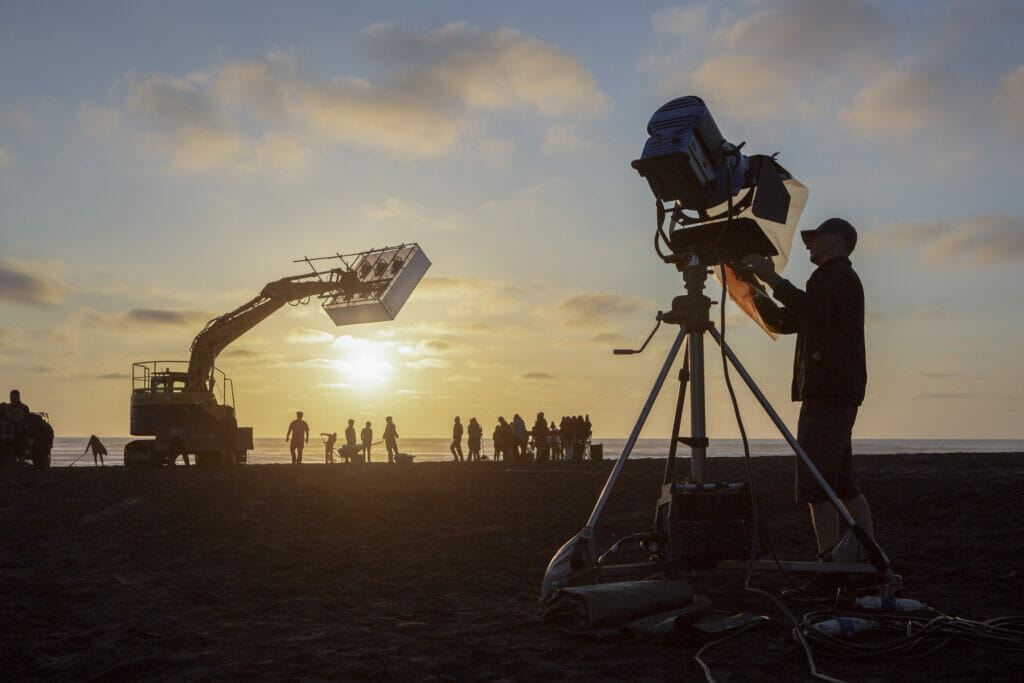Can you talk a bit to your professional background and your current work at Auckland Unlimited and Economic Development New Zealand?
I’m General Manager Economic Development at Auckland Unlimited, the region’s cultural and economic development agency. We deliver a co-ordinated, region-wide programme to maximise cultural, social and economic benefits for Aucklanders and visitors, and support our local businesses to thrive.
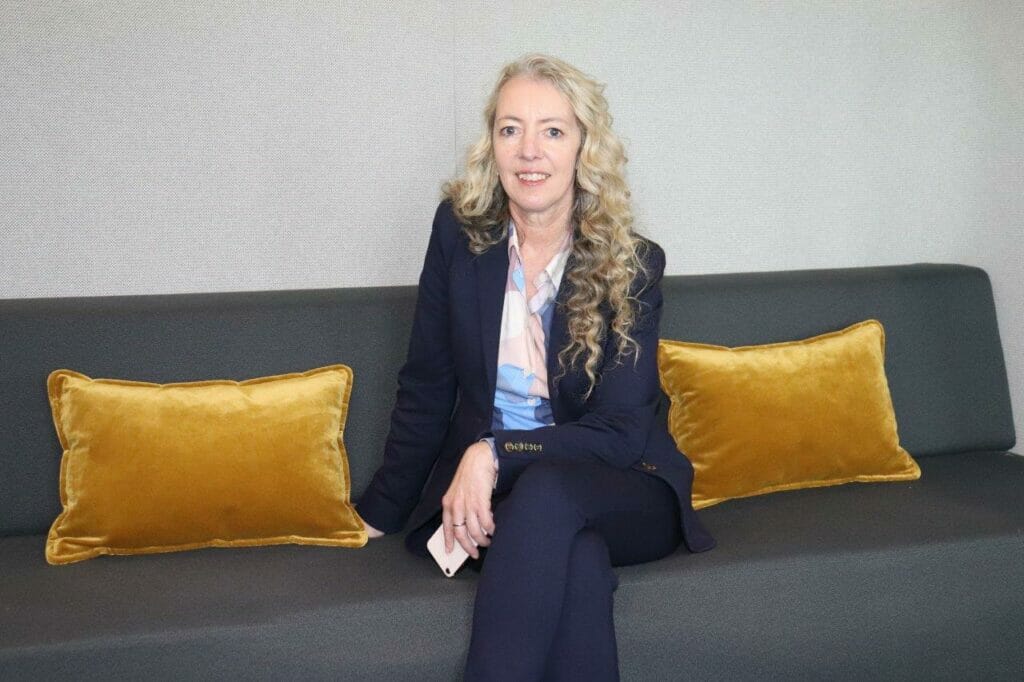
Before Covid-19, my role at Auckland Unlimited centred on leading international business and investment attraction, innovation, business growth, and sector and skills development. Now, it’s all the above, with a focus on the region’s economic recovery from the pandemic and how we can collectively support our communities, businesses, and industries in a Covid-19 world.
Since mid-2019 I’ve been chair of the national professional body, Economic Development New Zealand (EDNZ). I work to support the growth and reach of ENDZ as it strives to empower and enable our members and to be a strong advocate for economic development across all our regions to government.
By way of background, I was born in Tāmaki Makaurau Auckland, raised and educated in the Waikato, and have worked in Auckland, Wellington and overseas. My career has been varied, across local and central government, trade and investment, place brand, technology and innovation, the publishing and screen sectors, city-to-city links, and the non-profit sector.
Why is collaboration between the regions so important for overall national economic growth?
In a small country such as New Zealand, it’s important we combine our talents because when the regions do well, the entire nation does well.
Our regions are diverse in their attributes, with the potential to attract international investment, provide employment opportunities and raise shared prosperity – all indicators of economic growth.
In Auckland, we’re known for our large contribution to New Zealand’s GDP (nearly 40%). Our contribution to GST on production, import duties and other taxes was $9.3 billion alone for 2018, approximately 4.5 times greater than any other region.
This contribution to the nation’s economy has been brought into stark relief since the pandemic arrived on our shores, with the impacts of Auckland’s regional lockdowns felt across the country – particularly in domestic tourism, cultural and sporting events.
Collaboration across the regions has always been important for national economic growth and is now increasingly important as we navigate uncertain times. Auckland Unlimited collaborates with public and private sector partners across New Zealand to bring scale and impact to a range of projects to grow employment and prosperity.
We’re working with the economic development agency Northland Inc. in Te Tai Tokerau and Waikato District Council, to cement the natural geographical and economic bonds between the regions. This includes supporting initiatives across tourism, Māori economic development, innovation and investment attraction.
We’re also working with a cross-sector steering group and our fellow economic development agencies for Wellington and Christchurch, to collaborate with central government about how to share information and collaborate around border management to help support local jobs and economic activity.
If the pandemic has taught us anything, it’s that there is strength in numbers. We’re stronger when we work together, and it’s no different in the field of economic development.
Why do you think Covid-19 has had such a disproportionate economic effect on women?
Covid-19 has shone an even brighter spotlight on the entrenched gender-based career inequalities we’re all familiar with – from a women’s place in the labour market, the value of her work, the amount of unpaid work expected of her, and all within a society with many structural inequalities.
It’s fair to say women are bearing the brunt of the pandemic’s economic impacts predominantly due to the number in part-time work and service-based jobs across retail, tourism and hospitality.
It’s a marked change from previous recessions – the 1980’s financial markets crash and 2008’s GFC – where it was men who were harder hit in business sector roles. Now, frontline women in the service sector are most at risk and we’re anticipating this could get worse as businesses learn to get by with lower staffing levels.
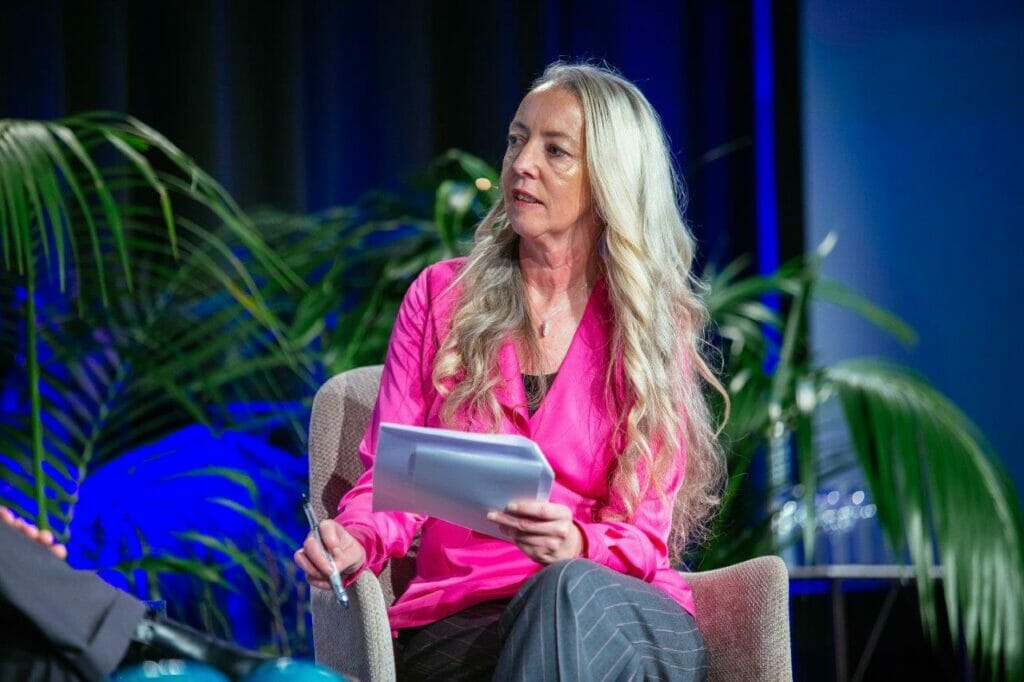
For women able to work from home through Auckland’s recurring lockdowns, it’s likely they are juggling job expectations and unpaid work, perhaps reducing paid hours so they can care for children. Again, structural inequalities mean this may be a better financial option for a family.
We can say New Zealand is slowly improving at a leadership level. Pre-pandemic the number of women on the boards of publicly listed companies was growing. However, many women are still faced with the obstacle of the ‘bottom rung of the broken ladder’.
What can and is being done to address these disparities?
There is an awareness in government, boardroom and management about the economic disparities women face, particularly women of colour. We all need to keep raising and spreading this awareness as part of our challenge to the status quo.
There’s overwhelming evidence of the positive impact women’s ideas and voices have in governance and leadership, and when women’s economic wellbeing and education are lifted – benefits for whanau, communities, businesses and countries.
Groups like SUPERdiverse WOMEN, the Government Women’s Network, TechWomen, the Women’s Entrepreneur Network, Global Women and many others are working hard advocating, training and linking women, making them more visible and connecting them with opportunities.
From networks like these to targeted government and business programmes, there are a range of scholarships, internships, graduate and observer programmes, and we also see women seizing the chance to flourish and triumph in wider initiatives, like the amazing interns I met at the recent Tupu Toa Gala.
Co-working and innovation spaces are also important too, bringing startups and entrepreneurs together in a community, and here in Auckland many of those spaces are led by women, enabling others. Look at the work people like Manawa Udy is doing with Ngahere Communities at Grid Manukau and online with Konei; co-founder of Auckland’s Click Creative Tech Studios, Aleisha Staples; Imche Fourie working with start-ups at New Zealand’s home for deep tech, LevelTwo; and our own Eve Charles working with startups at GridAKL.
To what extent have returning Kiwis had a positive effect on the economic development of New Zealand during its Covid-19 recovery?
While it’s sad to see the lives of so many Kiwis around the world disrupted by Covid-19, it really is a tremendous opportunity for New Zealand to welcome them home. They bring with them so much talent, knowledge, experience and more importantly, a fresh perspective to complement the high-calibre talent already here.
Kea’s Welcome Home Survey, which surveyed 15,000 expats around the world, highlighted the once-in-a generation opportunity the pandemic brings – people looking to return and or having already returned at the height of their career, with a willingness to contribute to New Zealand’s future.
We’re thrilled the survey revealed 32 per cent of respondents intended to or had already returned to Auckland. It’s an honour to have these people choose Tāmaki Makaurau as their home, but with this comes a great responsibility for our region given the role it plays in the national economy.
We need to welcome them, provide a space for their work and their ideas, and listen and collaborate to help them achieve their goals, as their experience and perspective may hold the key to problems New Zealand needs to solve.
We’re seeing the top industries looking to return are technology and science, and the arts and creative industries – all sectors of strength and significant potential for our region. The arrival of expat Kiwis looking to grow these sectors presents a great opportunity for our people, helping create high value, high-skilled sustainable jobs.
In a post-Covid economy, what do you believe the opportunities are for New Zealand to grow in a more productive and sustainable way?
In August we brought 200 Auckland business leaders together to explore how we live, work and do business in a Covid-19 world. One of most memorable discussions was an ethnically diverse panel of energetic women – all coincidentally wearing bright red – talking about health and social cohesion.
They hit on the recurring theme of the day – that this is an opportunity to reset the region for the future. While that includes building on our comparative advantages and seizing growth opportunities, it also includes addressing racial inequality and racism that underpins things like pay equity. And a key part of a reset will be working in partnership with iwi and honouring Te Tiriti o Waitangi.
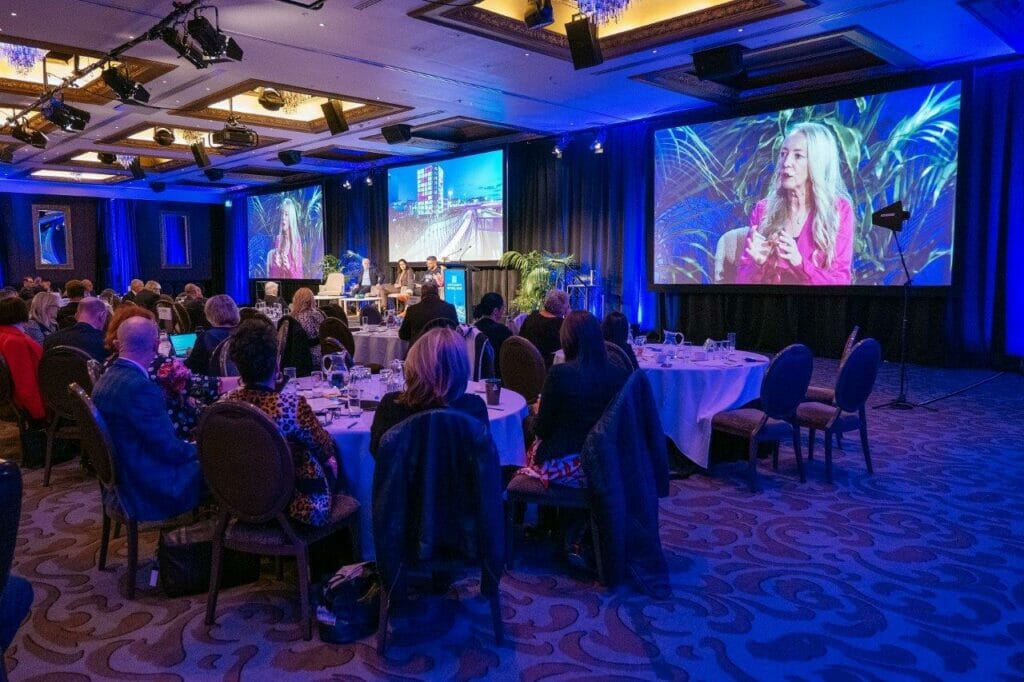
The Māori economy here in New Zealand – indigenous economies internationally – and regenerative economic models offer us ways of doing things different, more sustainably and inclusively, as we respond to Covid-19, climate change and social inequality. Our Māori creatives, entrepreneurs and innovators also make an enormous and unique contribution to our economy and our position in the world.
For New Zealand, there is significant opportunity for our ‘weightless economy’, based on technology and intellectual property. In Auckland, our thriving screen and technology sectors make a strong foundation to build on, and the intersection of our creative industries and technology is a really exciting space, as is green or clean tech.
What would your advice to a young Kiwi woman early in her career be?
Take your opportunities – and it may be simply doing the very best in your current role. Everything you do is a building block, adding new connections and experiences, which will become part of your story and your future opportunities.
To what extent do you believe building networks and global Kiwi connections is so important?
Networks and global connections are so important as they are an essential ingredient in making great things happen. Most important is how people act and use their networks and connections – being collaborative, respectful and open to new ideas and views.
What are your hopes for 2021?
Like 2020, this year is dominated by COVID-19. I’ve heard both our Prime Minister and President of the European Central Bank Christine Lagarde call it ‘the year of the vaccine’. My hope for 2021 is that vaccine rollout is swift and widespread so that we can get our economic recovery underway but most of all that we can resume reunion of families, and in- person business relationships. Because ultimately, it’s our core connections and networks that enrich our lives.
HOW KEA CAN HELP YOUR BUSINESS GROW
Kea Connect
Kea Connect is a free service that will help your business grow offshore. We connect you personally with regional, sector-specific experts and peers.
Resources
Kea is here to help New Zealand businesses grow offshore. Be inspired and hear advice from businesses who have created their export path.
Jobs Portal
Looking for the right talent for your team? Reach our global Kiwi community through the Kea international job portal.

 MENU
MENU

